

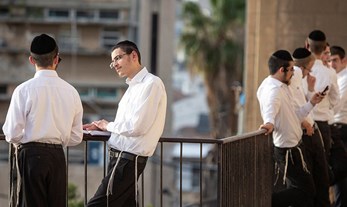
Ultra-Orthodox and Affirmative Action: Justice and not Charity
Written By: Dr. Asaf Malchi
For the ultra-Orthodox sector and for us as a society, justice is not charity.
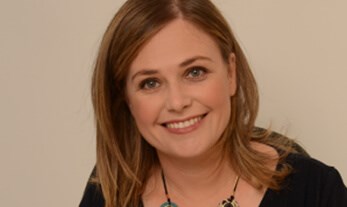
Is it Trump, Zuckerberg or Us - Whose Fault is Fake News?
"Weak media leads to fake news"
David Zeev (Reshet Bet) talks to Dr. Tehilla Shwartz Altshuler,
The panel: Is it Trump, Zuckerberg or US - Whose Fault is Fake News? was held at the Globes-Israel Business Conference in Jerusalem on January 11, 2018.
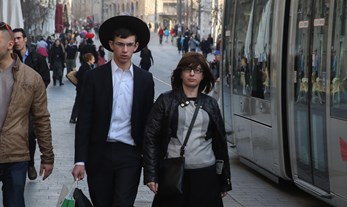
Who are the ultra-Orthodox?
Written By: Prof. Yedidia Z. Stern
Stereotypes—both positive and negative—are an obstacle to the development of a genuine partnership between the ultra-Orthodox and the rest of Israeli society. The Haredim are Israel's biggest sociological mystery. We must learn the facts rather than engaging in speculation.

Public trust in mass media - Breaking, turning and soaring?
Written By: Dr. Tehilla Shwartz Altshuler
Last year the Democracy Index pointed to an all-time low in public trust in the media. However, in 2017 it seems that the trend has reversed. Why?
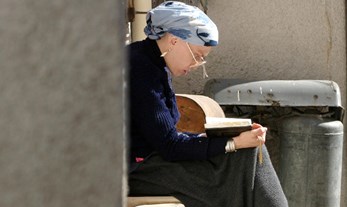
Haredi women lead change
Written By: Dr. Lee Cahaner
Are women leading the change in ultra-Orthodox society or are they preserving their unique way of life? Learn more about the tension between the possibilities that the modern world offers ultra-Orthodox women and the many complex challenges facing them.
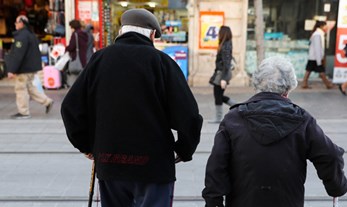
Living in Dignity
Written By: Prof. Eytan Sheshinski, Rachel Zaken
Our Democracy Index shows that while Israel’s citizens love their country and are optimistic about its future, they feel a lack of confidence about their personal futures.

Will an Amendment to Israel's National Security Law Change the Rules of the Game?
Written By: Prof. Amichai Cohen
In the US and more recently in Israel there is public discussion over the principled issues of the balance between the different branches of government in matters of national security and the proper mechanism to create accountability in these matters are universal.
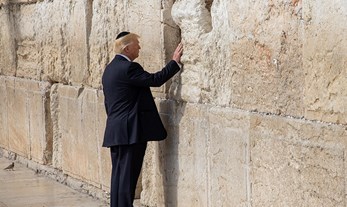
Is President Trump’s public declaration that Jerusalem is the capital of Israel in Israel's best interest?
Written By: Prof. Tamar Hermann, Prof. Ephraim Yaar
In light of President Trump's Declaration on Jerusalem: a large majority of the Jewish public think President Trump’s public declaration that Jerusalem is the capital of Israel was in Israel's best interest; a clear majority (over 60%) of the Israeli public agrees that Jerusalem is already divided into two cities: the eastern city and the western city

5 Things You Must Know About the ultra-Orthodox Community in Israel
How many ultra-Orthodox live in Israel today? How many will watch this clip on the internet? How are ultra-Orthodox women transforming their community? How many are employed? What age to they get married?

Statistical Report on Ultra-Orthodox Society in Israel
Written By: Dr. Lee Cahaner, Dr. Gilad Malach, Dr. Maya Choshen
Israel Democracy Institute and the Jerusalem Institute for Policy Research published today the 2017 Statistical Report on Ultra-Orthodox Society in Israel. The report presents trends in population, education, employment, and leisure in the ultra-Orthodox sector in Israel.
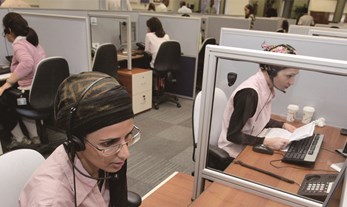
Charedi Women Increasingly Having It All
Written By: Michele Chabin | The New York Jewish Week
Growing numbers of ultra-Orthodox women postponing marriage to pursue a career path, new study finds.
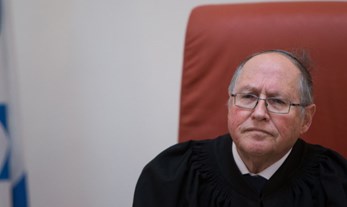
Back to the ‘Ticking Bomb’ Doctrine
Written By: Prof. Yuval Shany
The Israeli High Court of Justice’s Dec. 12 decision in Abu Ghosh v. Attorney-General provides a good opportunity to reexamine the implementation of the prohibition against torture in Israeli law almost twenty years after the court’s landmark 1999 judgment in Public Committee Against Torture in Israel, which outlawed torture.
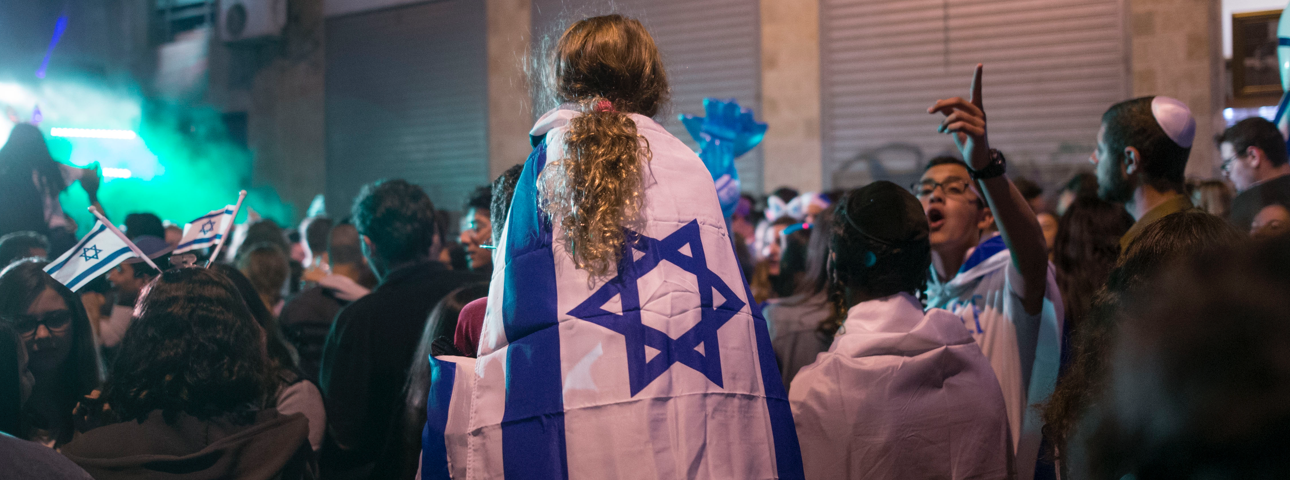
Israel: Crying or Laughing?
Written By: Prof. Yedidia Z. Stern
The general picture produced by the Democracy Index is of a manic-depressive society – is this the beginning of a transition from a turbulent and confused adolescence into a quiet and steady adulthood?

How Much Do Diaspora Jews Matter To Israel?
Written By: Prof. Yedidia Z. Stern
At approximately eight million people, diaspora Jewry comprises the fifth tribe of Israel. The Knesset is currently debating a proposal, which among other things addresses the connection with Diaspora Jewry entitled “Israel – The Nation State of the Jewish People”.

Magnetism of Moral Reasoning
Written By: Dr. Richard Stacey
Six countries – Canada, Germany, India, Israel, Poland and South Africa – are paradigm examples of modern constitutional systems where rights may be limited through the application
of a constitutional limitations clause. In each jurisdiction, the constitutionality of a rights limitation has come to rely on the principle of proportionality, and the key exercise in judicially reviewing a rights limitation is the proportionality analysis.
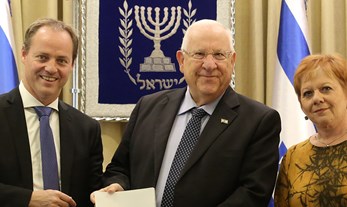
Israeli Democracy Index 2017
Written By: Reuven Rivlin, Yohanan Plesner , Prof. Tamar Hermann
Widespread dissatisfaction with Israel's leadership and institutions; Most Israelis believe Knesset has legislated undemocratic laws and oppose taking powers of judicial review away from Supreme Court; Israelis distrust the media and rely more on traditional media than social media; Israelis are optimistic in their assessment of the overall situation of the country and its future; Israeli citizens rank high in OECD scale on political involvement

The Chief of Staff’s Speech at IDI’s Workshop
Written By: Lt. Gen. Gadi Eizenkot
“If anything could jeopardize the IDF’s ability to fulfill its mission, it would be loss of the public’s trust. This trust is crucial to our ability to recruit young people every year and demand that they serve in the best units and risk their lives to protect Israel’s security.”
Listen to Chief of Staff, Gen. Gadi Eizenkot’s speech at the "Liberal Democracies and Their Fight against Terror" Workshop, held within the framework of IDI’s Amnon Lipkin-Shahak Program on National Security and Democracy

Israeli Jews and American Jews: The Uniting Forces are Stronger
Written By: Prof. Tamar Hermann, Prof. Ephraim Yaar
The monthly Peace Index of the Israel Democracy Institute and Tel Aviv University, published today, found that Israelis think that the forces that unite Israeli Jews and American Jews are stronger than the forces that separate them; a significant portion of the public believe that the Prime Minister failed to deal with the Iranian threat; and a significant majority of the public think that the Recommendations Law should not be approved
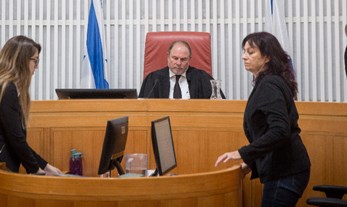
Are Judges Objective?
Written By: Prof. Yedidia Z. Stern
On the link between ‘who’ and ‘what’ in Judicial rulings
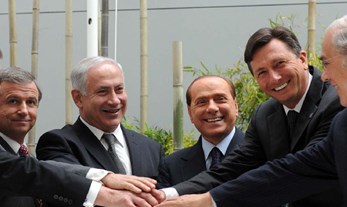
In the Race to Reform Business Regulation, Israel Still Falls behind
Written By: Daphna Aviram-Nitzan
Despite making regulatory improvements, the past decade saw Israel continue its slip down the World Bank's annual ease of doing business rankings. But this descent can still be reversed.

The Israeli Facebook bill is Unenforceable
Written By: Dr. Tehilla Shwartz Altshuler
The Facebook Bill, which would allow the government to use administrative means to remove content from social networking sites, would both set a precedent and be ineffective
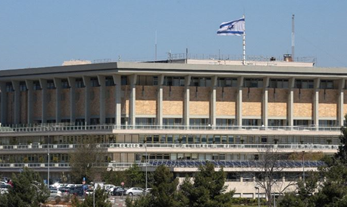
Where has the Oppositon gone?
Written By: Dr. Chen Friedberg
The danger of a weak opposition should not be underestimated. This situation harms most of all those populations who are not represented in government, and even harms the functioning of the government itself, which is not subjected to real criticism

IDF Report Card
Written By: Prof. Tamar Hermann, Prof. Ephraim Yaar
The Israelis Still believe that the IDF should be the People’s Army and Want Ultra-Orthodox People to Enlist

Two Jewish Nations and the Abyss Between Them
Written By: Dr. Shuki Friedman
For many American Jews, identification with the State of Israel is a significant component of their Jewish identity.
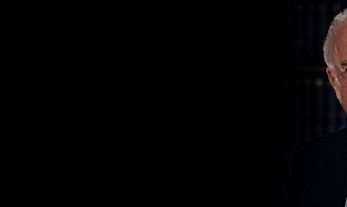
Rabin: Warrior for Equality
Written By: Dr. Nasreen Haddad Haj-Yahya
Rabin's legacy was equal representation at decision-making levels, fair regulation of land and services in Arab towns and equality as a right that’s guaranteed to all.
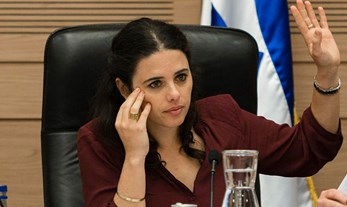
Behind the Scenes of Israel's Ministerial Committee For Legislation
There are ways to transform this powerful committee into one that combines politics with professionalism, instead of being one more arena for the settling of political scores.
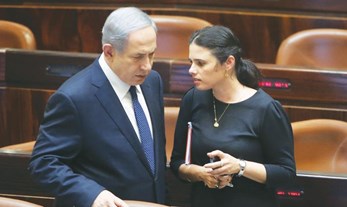
Who's Afraid of a Jewish State with Equality for All?
Written By: Yohanan Plesner
A state that is proud of its identity has nothing to fear from granting all its citizens equality.

Harmful Revolution: The Nation-State Bill’s Assault on Equality
Written By: Prof. Yedidia Z. Stern
Israelis must unite around a balanced arrangement that asserts that Israel is the nation-state of the Jewish people that guarantees equality for all its citizens.

Religion Can Be the Bridge Linking Jews and Muslims
Written By: Dr. Shuki Friedman
How both faiths can use their common threads and customs as a means to connect, dialogue and cooperate.

IDI's International Advisory Council Convenes for Seventh Time
From September 8 - 12, members of IDI's International Advisory Council (IAC) and distinguished guests gathered in Baltimore, MD and Washington, DC for the council’s seventh meeting.

